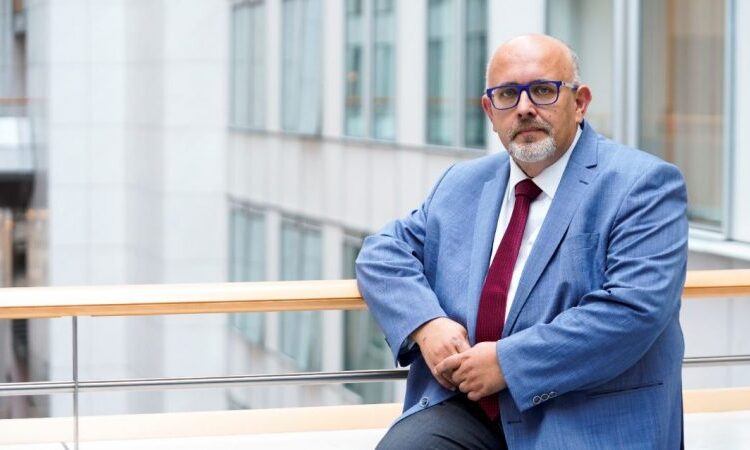
Privacy and data protection are part of the human rights too often suspended at the borders of the European Union – as long as we continue treating migration as a ‘problem’, fundamental rights will remain compromised, Wojciech Wiewiórowski writes.
Wojciech Wiewiórowski is the European Data Protection Supervisor.
On January 28, we celebrate Data Protection Day. Every year we celebrate this day with pride, there are, after all, many reasons to be proud of the achievements of the European Union in respect of data protection and privacy.
But every year, we also become increasingly aware of the unresolved challenges that continue to lurk. I don’t mean those behind the veil of ‘Big Tech’, but rather those emerging from the stormy waters of the Aegean Sea, the cold forests of Białowieża, or the fences of Melilla.
Privacy and data protection are part of the human rights too often suspended at the borders of the European Union. They are rights, which marginalised individuals, stateless families, and migrant communities too often see discarded – a fleeting promise of fundamental protection to which they have not become privy, even though the Charter of Fundamental Rights is not limited only to those holding EU citizenship.
As the European Data Protection Supervisor (EDPS), I am confronted with many situations on a daily basis that raise cause for concern. From the pervasive collection of data from people facing immense vulnerabilities during so-called debriefing interviews and the questionable accuracy of screening interviews, to the fingerprinting and collection of biometric data of children. Not to mention the dangerous tendency of blurring the lines between databases created for migration management purposes and for criminal and law enforcement reasons.
The so-called New Pact on Migration was presented as the new opening (although it is more like a “sturgeon of the second freshness” from Bulgakov’s Master and Margarita) in the EU common approach to migration. Yet, much like its preceding legislative drafts proposed after the 2015 crisis, it represents sadly, the same narrow philosophy: that there is a threat that needs to be tackled and that certain practices need to be somehow legalised. As long as we continue treating migration as a “problem”, fundamental rights will remain compromised.
I strongly believe that the culture of treating people on the move as potential criminals needs to be halted. Otherwise, we will continue to hear alarming reports on organised pushbacks, on the persecution of NGO activists, and on excessive EU-money spending for building what some call the “Fortress Europe”.
The final steps of the development of the interoperable EU border management databases will put everyone trying to enter the EU under broad surveillance, when in fact they were designed to only catch a small minority of criminals.
Recently, the debate on fundamental rights at the borders of the EU has focused on Frontex – the European Border and Coast Guard Agency. I am convinced that Frontex can have a role to play in positively influencing the practices of national authorities. But for that to happen, there has to be a strong commitment and determination on its side, coupled with strong endorsement and scrutiny by EU institutions, in particular the European Commission.
The EDPS remains ready to assist Frontex, and other EU agencies involved in this field, to ensure the protection of fundamental rights not only within the territories of our familiar soil.
I note that the EU is also (sometimes maybe with too much comfort), expanding its cooperation with some third-countries. Migration is a phenomenon, which indeed needs to be contextually understood with reference to the countries from where the migration originates. But such cooperation, especially when performed in the fight against so-called irregular migration, might in certain cases perpetuate the policies that do not take due account of the human rights.
Sometimes, it seems forgotten that just because the EU is not doing something directly, it does not mean it does not contribute to it. Investigations by the EU Ombudsman have recently shed more light on these malpractices, which I hope will be taken seriously by those in charge.
Data protection is a right that aims to empower individuals, giving them control and the possibility to know how their personal data is supposed to be used. Extra effort is needed for this to materialise when it comes to those most vulnerable. It is often the most vulnerable and those that we take for granted the most, that can make the biggest difference to our lives and communities at the end of the day.






